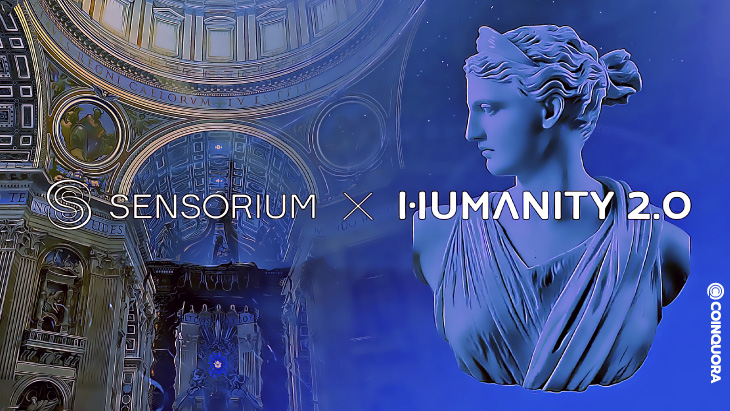- The Vatican has decided to democratize art by opening an NFT art museum.
- A VR startup called Sensorium, and Humanity 2.0, a Vatican NGO will work on this project.
- The gallery will be accessible via virtual reality headsets, and desktop computers by the end of 2022.
The Vatican has announced the release of a virtual, non-fungible token (NFT) art gallery or museum, where people will marvel at the collection of divine artworks, paintings, and manuscripts. The gallery, which will be accessible via virtual reality headsets as well as desktop computers, is predicted to open by the end of 2022.
This venture by the Vatican has been in association with a virtual-reality startup called Sensorium and Humanity 2.0, a Vatican-supported NGO.
Sensorium — a major metaverse developer involved in VR and NFT solutions — stated on a blogpost that together with the Humanity 2.0 Foundation they will develop… the first-of-its-kind VR and NFT gallery to cater to Vatican’s art and academic content.
The Vatican has planned to democratize art under the leadership of Father Philip Larrey, who holds the Chair of Logic and Epistemology at the Pontifical Lateran University in the Vatican.
Father Larrey stated:
We look forward to working with Sensorium to explore ways to democratize art, making it more widely available to people around the world regardless of their socio-economic and geographical limitations,
Father Larrey further added that this new collaboration with Sensorium will help further their goal and will equip them with advanced technical solutions.
Some of the world’s most exquisite items of art and antiquities are stored in the Vatican. The Vatican Museums were founded in the 16th century and possess over 800 works of art. They include works by Renaissance painters such as Michelangelo and Raphael; and more contemporary works by Wassily Kandinsky and Vincent van Gogh.
The Vatican is still to decide whether the Vatican’s collection of digital assets will be available for purchase as NFTs, or when.
Many organizations have entered the metaverse by actively investing in blockchains and NFTs. Since the outbreak of Covid and the accompanying lockdowns, businesses have focused on their digital footprint and internet presence, and the Vatican has followed suit.


